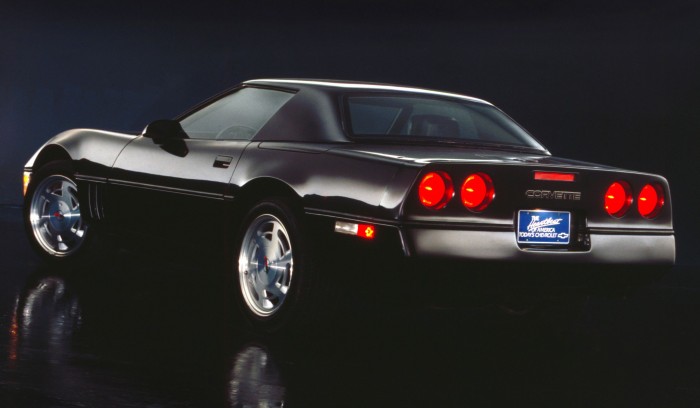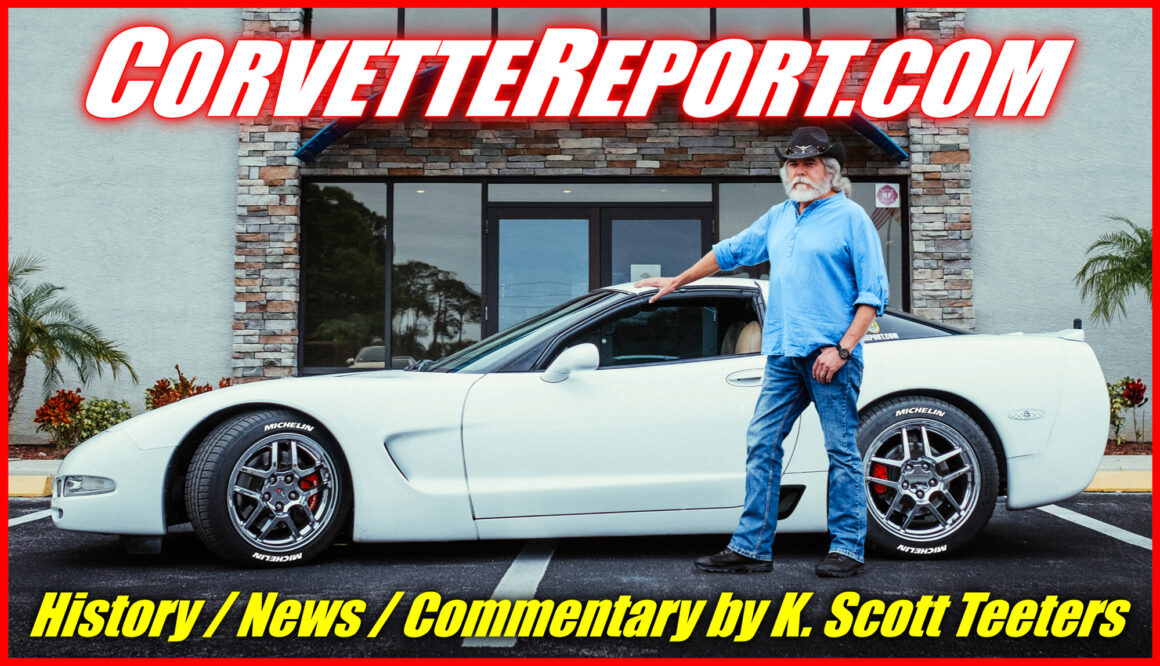
photo courtesy of GM Media
by Daniel Strohl as republished from Hemmings Blog
Russ Mclean Strives to keep Corvette Alive!
Dateline 11.18.15: Though an icon of American performance, the Chevrolet Corvette hasn’t always had a secure place in the General’s lineup. Most Corvette historians and enthusiasts already know that it faced cancellation multiple times early in existence, but the story of another potential death knell is just now becoming public more than 20 years after it happened, and the man best positioned to tell that story – the man who defied GM’s order to let the Corvette die – will tell that story this weekend.
By the mid-1990s, Russ McLean had already worked for GM for many years – including stints in Spain and in Mexico – and developed a reputation as a cost-cutter and turnaround champ. That reputation led to his appointment as manager of the Corvette platform at a time when the fourth-generation Corvette was losing about $1,000 per car. At the time, McLean noted, GM suffered from a one-two punch of financial difficulties and continuous reorganization, so he decided to isolate the Corvette team from “all that noise.”
By maintaining one stable organizational structure independent from the overall GM structure, he said he was able to make necessary changes – improving the Corvette’s quality and reducing overall costs – that in turn led to Corvette making a profit within McLean’s first year.

Russ Mclean
With the fourth-generation Corvette’s stability ensured, McLean believed his next task was to focus on developing the C5, which GM had already approved. However, a management change brought with it a new order from GM’s board of directors: Stop development on the Corvette and let it sunset. For somebody like McLean, who had bought a 1960 Corvette in 1962 and who believed in the Corvette, he couldn’t accept that order. So he ignored it.
“As a manager, I believed in doing the right things rather than doing things right,” McLean said. “The Corvette was always the innovation leader for General Motors and for the world, and that innovation flowed into so many other cars. So when somebody told me to let that icon die, I just couldn’t let that happen – it was not the right thing to do.”
He decided then and there not to tell his staff – or anybody else in the world, save for his wife – what his boss had ordered him to do. He kept the Corvette platform team running in silence, not asking permission for anything they did, and he avoided contact and communication with his boss and GM management. He continued the C5’s development as if nothing had happened and was able to launch it for the 1997 model year.
And he did indeed face repercussions for what he did. “I wasn’t considered a team player, I didn’t follow directions,” McLean said of his later evaluations. “Yes, I lost out on promotions after that.” In 1996, he left the Corvette team and in the fall of 2001 he left GM entirely. He bought a couple of vintage Corvettes – a 1963 split-window fuelie and a 1958 airbox car – and settled into taking care of his aging parents and the family farm.
McLean said he thought he’d never tell the story in public, but when the National Corvette Museum nominated him to the museum’s Corvette Hall of Fame earlier this year, Corvette restorer and fellow Corvette Hall of Fame member Werner Meier suggested that McLean tell the story at the induction ceremony in September. McLean had related the story once before in the pages of Corvette Enthusiast magazine, but he said the telling at the induction ceremony shocked plenty of people in the audience. “They were surprised that the Corvette came that close to being eliminated,” he said.
Anybody who missed the induction ceremony still has a chance to hear McLean tell the story this weekend as part of the National Corvette Restorers Society’s tech seminar program hosted by Pro Team Corvette. Along with McLean’s story, the program will include Greg Fadler and John Heinricy’s “Evolution of a Race Car,” Jerry Burton’s “The Life of Zora Arkus-Duntov,” and Ken Kayser’s discussion of Chevrolet big-block engine development.
The program will take place Saturday at Pro Team’s headquarters in Napoleon, Ohio. Tickets are $20 per person, or free to anybody 45 years old or younger. For more information, visit ProTeamCorvette.com.
